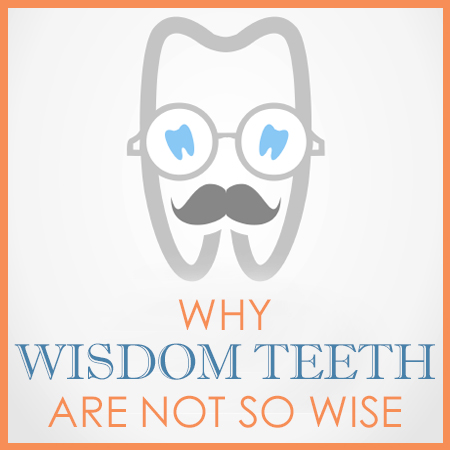Why Wisdom Teeth are Not So Wise
 Most Cornelius folks have had some exposure to the concept of wisdom teeth. Perhaps you have had yours removed, are considering a removal, or Dr. Whalen has just shown you an X-Ray with the infamous third molars creeping into view. It’s common to hear patients ask how they are removed, but we rarely hear people talking about the reasons for getting rid of wisdom teeth. Today, we at Whalen Dentistry are going to explain what wisdom teeth are, why they don’t deserve to stay in your mouth, and how we can help! As always, feel free to call us with any questions or concerns.
Most Cornelius folks have had some exposure to the concept of wisdom teeth. Perhaps you have had yours removed, are considering a removal, or Dr. Whalen has just shown you an X-Ray with the infamous third molars creeping into view. It’s common to hear patients ask how they are removed, but we rarely hear people talking about the reasons for getting rid of wisdom teeth. Today, we at Whalen Dentistry are going to explain what wisdom teeth are, why they don’t deserve to stay in your mouth, and how we can help! As always, feel free to call us with any questions or concerns.
What are Wisdom Teeth?
Wisdom teeth are the third set of adult molars. Unlike the rest of your adult teeth, they appear many years later, typically between the ages of 17 and 25. Most people get four wisdom teeth (one in each back corner), but some get fewer, some get more, and some lucky folks never get any. Despite their name, wisdom teeth do not confer any special knowledge or enlightenment upon their owners. They just happen to show up later in life than the rest.
Why Get Rid of Wisdom Teeth?
There are two basic reasons we remove wisdom teeth – they are impacted (stuck in the gums, jawbone, or both), or they are likely to become a problem. The general idea is laid out below. Make sure to check these out before getting too excited about the potential for extra chomping power.
- They don’t actually do anything!
There is no special value that wisdom teeth can provide. A full set of 28 adult teeth is just the right amount for proper chewing and speaking. The more the merrier may be a popular theme in Cornelius, but it does not apply to teeth. In fact, research suggests that our brains (and thus, skulls) expanded so rapidly that we no longer have big enough jaws to support wisdom teeth with any real functionality.
- They can cause more trouble than they’re worth.
Let’s say you’ve become attached to your wisdom teeth in much the same way they are attached to you, and decide not to remove them. You may end up without any problems, but it’s important to understand what could happen. Wisdom teeth rarely come in straight, they usually disrupt the alignment of other teeth, and they are almost always accompanied by a hearty helping of pain.
- Removing them early on is safer and easier than letting them stick around.
If complications are already present, they will most likely get worse with time as the bone grows and solidifies. This means that they can exert more pressure on surrounding teeth, are more difficult to remove, cause more pain, and can even create new complications. For example, in rare cases, the root of a wisdom tooth can wrap around the jawbone and abscess.
At the end of the day, it is best to consult with Dr. Whalen to figure out the optimal course of action for your unique situation. If you or your child’s wisdom teeth are coming in without any problems, it may not be necessary to remove them. However, only an X-ray can provide the information necessary to make the right call. If you do need one or more teeth removed, don’t panic! We at Whalen Dentistry will help you get the care you need! Call us to schedule a consultation today!
Sources
http://en.wikipedia.org/wiki/Wisdom_tooth
http://www.webmd.com/oral-health/guide/wisdom-teeth
http://www.webmd.com/oral-health/news/20050505/wisdom-teeth-removal-often-unnecessary
